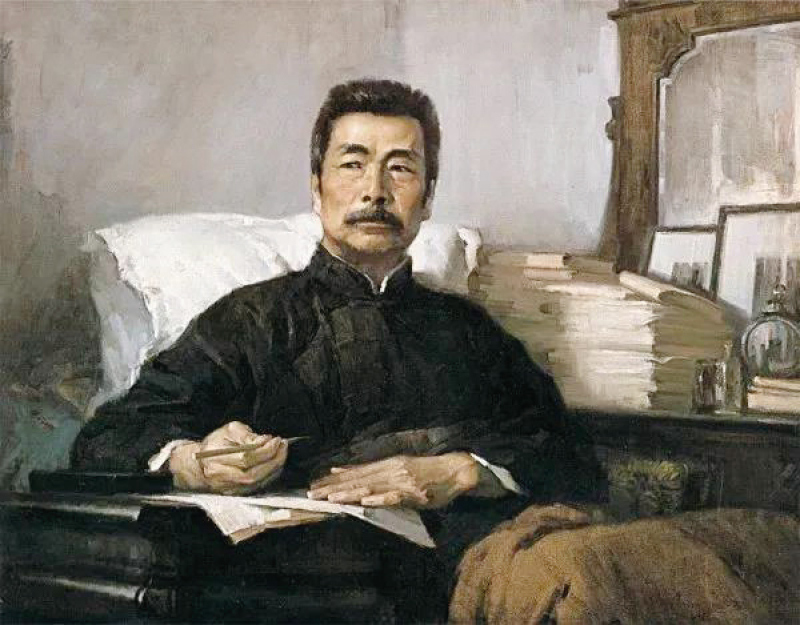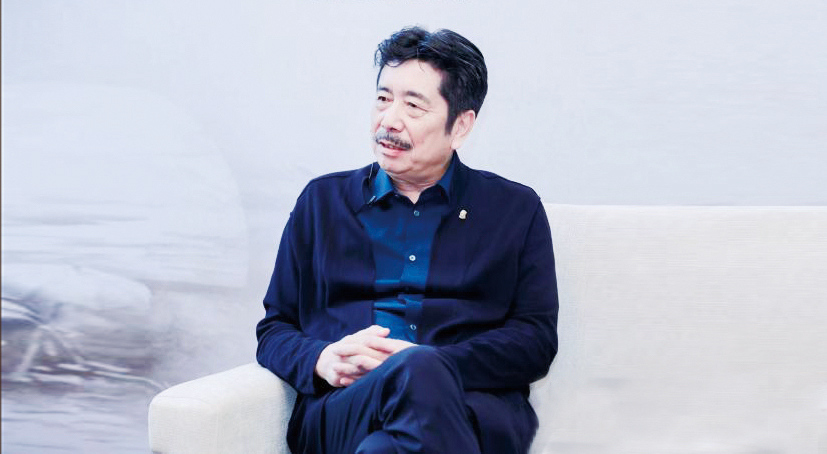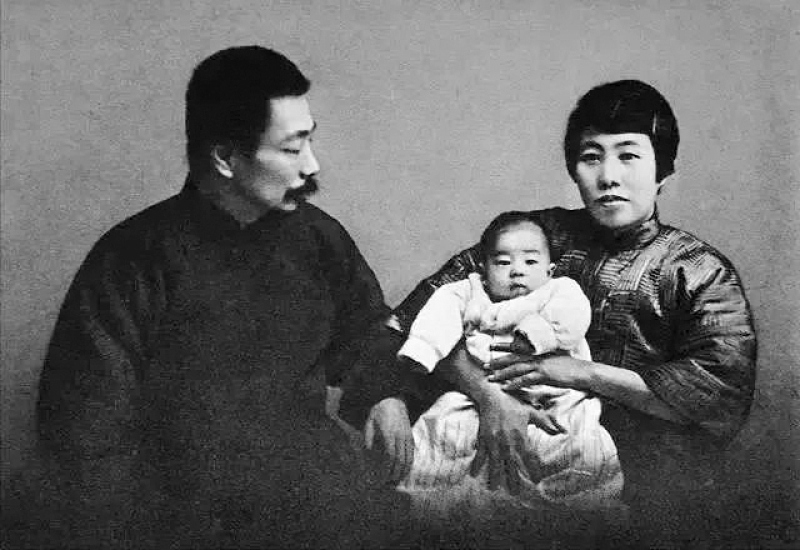
An oil painting portrait of Lu Xun
In the past, the public usually knew Lu Xun through textbooks, and even Zhou himself got to know his own grandfather in this way, which to Zhou is too simplistic. Every time it was just opening the textbooks, reading the texts and looking for the main ideas. “My teacher’s understanding was our understanding, and my teacher’s ideas were our ideas,” opines Zhou. His classmates also made fun of him: “Time to memorize your grandfather’s essays again.”
Zhou Lingfei readily admits that he couldn’t understand his grandfather’s writings during his school years. Later, he realized that his inability to do so originated from the unfamiliar world that Lu Xun lived in, which for a long time deterred young people from studying Lu Xun and his works.

Zhou Lingfei, Lu Xun’s eldest grandson and president of Lu Xun Culture Foundation
Fortunately, with the development of new technologies, particularly the internet, more and more young people are now approaching and exploring Lu Xun in their own ways. In “bullet screen comments” on the wildly popular video-sharing website bilibili, in standup comedies, in films and TV dramas, different images of Lu Xun can all be found. He is even making appearances in rap music and mobile phone games.
Serious or otherwise, Zhou Lingfei has no issues with the way Lu Xun’s image is communicated to the public.
However, an important point Zhou emphasizes is that everything should be based on facts. In one scene of the Age of Awakening, the acclaimed TV drama on the China’s modern revolution, papers were strewn all over the place as Lu Xun lay prone writing A Madman’s Diary. Zhou thinks it exaggerated, for in the family memory, Lu Xun was neat and organized; he wouldn’t have left his manuscript scattered everywhere.
However the public perceives Lu Xun, for his family, Lu was a flesh-and-blood human being, with all the emotions and desires, which, for Zhou Lingfei, has taken 20 years to sink in.

Lu Xun and his wife Xu Guangping are seen in a family photo for the 100-day celebration of his son’s birth (photo taken on January 4, 1930)
Two decades ago, Zhou’s knowledge of his grandfather was no different from that of the general public. Living in the shadow of such an eminent grandfather, he tried to avoid and even escape from anything related to Lu Xun.
It all changed when Zhou began to genuinely look at his grandfather as he was and later became the head of the Lu Xun Culture Foundation. “I’ve made a lot of progress, and has grown ever closer to my grandfather,” Zhou explains. Humorous, full of smiles, fond of drinking, smoking and chatting, a gourmet and quite into movies … these are the “labels” Zhou has given to Lu Xun.
Zhou’s memoirs on his grandfather recorded an interesting anecdote. When Lu Xun taught at Xiamen University between 1926 and 1927, he went to a barbershop one day. Seeing Lu somewhat shabbily dressed, the barber gave him a cursory haircut. After it was done, Lu handed him a handful of cash and left. Later, he went to the same barbershop again. This time, the barber treated Lu with the utmost respect, and when he was done, Lu still took out a handful of cash but only gave two yuan to the barber. “Why so little this time?” The barber demanded. “Last time I was perfunctory in handing out the money, and today I’m serious too.”
This episode has left a strong impression on Zhou, for he didn’t realize his grandfather was such a fun guy, much cooler than what the textbooks have presented. Indeed, although Lu Xun had a handsome income, he didn’t have much money with him, as he donated a lot to revolutionary causes and to young and upcoming writers. He was quite hospitable, often inviting his friends to his home and treating them to lunches and dinners. He was stern in disciplining his son, yet was also indulgent with him. He loved going to the movies, he enjoyed drinking and getting tipsy, he was into stone engraving …
Over the years, the efforts by Zhou and many others have helped dispel some of the most popular myths and stereotypes about Lu Xun.
“Perhaps the public perception of Lu Xun will be different again when the 150th anniversary of his birthday arrives,“ says Zhou.
Editor: Huang Yan




